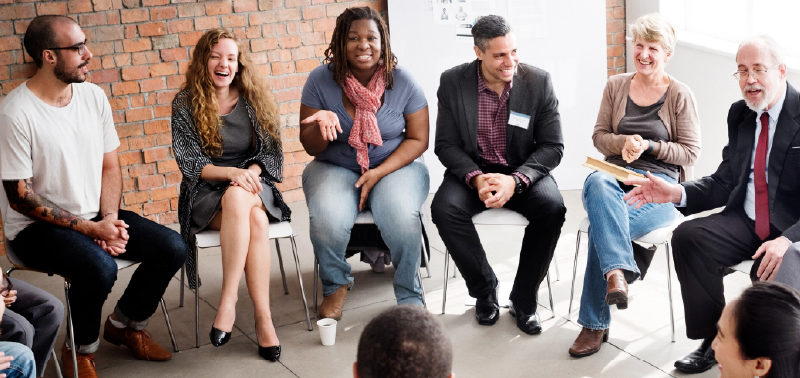Future Skills
Future skills – basic literacy, numeracy and socio-emotional skills – are important across all economic sectors and occupations. Figuring out who and how to address skills gaps is key to building an inclusive workforce with upward mobility.
Project
ABC Skills Hub
Nearly half of Canadian adults have inadequate literacy skills, meaning they have poor reading, writing and numeracy skills that limit their ability to participate in the economy and daily life. ABC Life Literacy, an expert in adult learning, has been successfully offering adult literacy courses in person, and sought to migrate this content online to be more widely accessible to individual learners and other literacy organizations across the country.
In the Media
$5.5 Million in Funding Awarded for Skilled Trades Workforce Development as CBTU, SkillPlan, Future Skills Centre, Magnet, SRDC gather in Kelowna
Kelowna, BC – Today, the Hon. Randy Boissonnault, Minister of Employment, Workforce Development and Official Languages of Canada joined leaders from Canada’s Building Trades Unions, Provincial Building Trades Councils, and workforce development partners SkillPlan, Future Skills Centre, Magnet, and SRDC to announce $5.5 million in investments supporting apprenticeships, and national-scale recruitment, assessment, and training to help underrepresented workers find well-paid careers in the skilled trades.
Research
Tutoring in the age of COVID-19: A case study of the study buddy program
The program resulted in families feeling more comfortable and confident with online learning and school work. Students and tutors alike developed problem-solving, decision-making, interpersonal and technology skills, all of which play a role in academic success.
Research
Planning for sustainable jobs 101
This project examined what kinds of future skills and jobs will be needed, how the nature of the work is changing, what kinds of support and policies can aid businesses and workers alike, and how policymakers, educational institutions, and industry can both enable and smooth this transition. It studied three specific opportunities: zero-emission vehicles in Ontario, plant-based protein in Manitoba and Saskatchewan, and mass timber in British Columbia.
Research
Newcomer pathways to employment: Canadian Diversity Magazine special issue
We outline the important role immigration plays in economic growth and in addressing skills and labour shortages, and examine Canada’s role in developing innovative approaches to address global humanitarian crises.
Research
Can Experiential Learning Go Virtual? Lessons Learned From Canadian Nursing Education During the Pandemic
Experiential learning (EL)—or learning by doing—is an essential component of many postsecondary education (PSE) programs. This type of training lets people develop hands-on skills and...
Project
Skills and strategies for quality hybrid work in Canada
With several years of hybrid work implementation, this project sought to document the hybrid work experiences of 20 Canadian executive-level leaders in workforce innovation and skills development and private sector organizations in culture, finance, tech, and professional services.
In the Media
The AI revolution is here; are you prepared for the future of work?
The question is on everyone’s minds these days: will AI help or hinder the future of work? Will it enhance human capability, and even create new jobs? Or will it replace human labour, leaving people in a world of ever-shrinking job prospects?
Research
Levelling the playing field for Black Canadians
In this research, we look at how Black Canadian professionals’ social and emotional skills are valued in the workplace and how leaders can cultivate a workplace where everyone feels empowered and included.
How do Black Canadians see their racial identity impacting the recognition and evaluation of their social and emotional skills (SES) at work? What are the risks of an employees’ skills not being recognized? What are the benefits of realizing the diverse skill sets within an organization?
Read the impact paper to get the full analysis.










